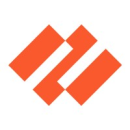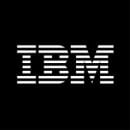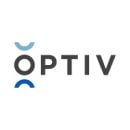
In an era of hybrid work, cloud computing and AI-driven everything, cybersecurity has emerged not just as a line item in IT budgets, but as a mission-critical pillar for business resilience. Ransomware, business email compromise and data breaches remain the top tactics deployed by threat actors, with nation-state and organized cybercriminal groups becoming more advanced in their methods. As the field develops, so does the demand for skilled talent and innovative information security solutions.
Over the past few years, the threat landscape has dramatically intensified. According to the FBI’s Internet Crime Complaint Center (IC3) 2024 Internet Crime Report, released in March 2025, the bureau logged nearly 860,000 cybercrime complaints last year, with reported losses reaching $16.6 billion — a 33 percent surge over 2023 and more than double the damage recorded in 2021.
The companies featured below represent a cross-section of the industry’s most impactful players, from endpoint protection and identity management to threat intelligence. For tech professionals seeking high-impact roles or organizations navigating digital transformation, these are the infosec companies to know.
Top Information Security Companies to Know
- Palo Alto Networks
- CrowdStrike
- Fortinet
- IBM
- Zscaler
- CyberArk
- SentinelOne
- Bitdefender
- Tenable
- Optiv
More on Built InCompanies Hiring Cybersecurity Professionals
Top Information Security Companies
Palo Alto Networks provides network, cloud and endpoint security through an integrated platform built for modern enterprise environments. The company is known for developing threat prevention technologies and security operations tools that leverage artificial intelligence and machine learning. It serves customers across sectors including finance, healthcare and government.
CrowdStrike delivers endpoint protection and threat intelligence through its cloud-native Falcon platform. Its services are widely adopted across both public and private sectors and are often deployed as part of extended detection and response, or XDR, strategies. The company supports security operations teams with real-time attack detection, forensic capabilities and automated response.
SentinelOne offers AI-powered endpoint protection, threat detection and response capabilities for organizations of all sizes. Its platform supports autonomous operation, aiming to reduce the workload on security teams. SentinelOne integrates with broader security ecosystems, including SIEM and SOAR tools.
Bitdefender provides cybersecurity solutions across endpoint protection, network security and threat intelligence. The company serves both enterprise and consumer markets, with operations in over 170 countries. Bitdefender’s research teams regularly uncover vulnerabilities and track threat actor activity. Its technology is licensed by other major security vendors and embedded in partner ecosystems.
Zscaler specializes in secure access to applications and services through a cloud-native security platform. The company supports zero trust network access and cloud firewall deployment, helping organizations manage security in decentralized and hybrid work environments. Zscaler’s platform is designed to inspect traffic without backhauling through traditional data centers. It serves a range of industries including manufacturing, retail and healthcare.
IBM operates a dedicated security division offering managed services, threat intelligence and zero trust architecture tools. Its X-Force research team provides analysis of global cyber threats and vulnerabilities. IBM’s portfolio includes capabilities in data protection, cloud security and security orchestration. It works with both government and enterprise clients to support secure digital transformation.
Fortinet is a long-standing player in network and cloud security, offering a broad suite of products that span firewalls, SD-WAN and secure access. Its Security Fabric architecture aims to unify threat detection and response across enterprise environments. Fortinet’s technologies are used by service providers and large enterprises around the world.
CyberArk focuses on identity security with an emphasis on protecting privileged access and credentials. Its offerings include solutions for securing infrastructure, DevOps environments and cloud workloads. CyberArk’s tools are used to enforce least privilege policies and reduce insider risk.
Optiv is a cybersecurity solutions integrator offering services in risk management, architecture design and security operations. It partners with a broad set of technology vendors to implement and optimize enterprise security programs. Optiv assists clients with threat assessments, governance strategies and managed detection and response.
Tenable is known for its work in vulnerability management and attack surface monitoring. Its Nessus product is widely used by security professionals for assessing system weaknesses. Tenable helps organizations quantify and prioritize risk across cloud, IT and operational technology assets. It supports compliance reporting and aligns with common security frameworks.









